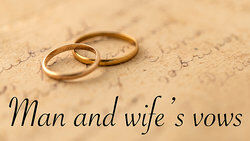
A noun names a person, place, thing, idea, quality or action. A possessive noun shows ownership by adding an apostrophe, an "s" or both. To make a single noun possessive, simply add an apostrophe and an "s."
Singular Possessive Nouns
- Apple's taste
- Book's cover
- Boss's car
- Cat's tuna
- Computer's keyboard
- Deer's antlers
- Diane's book
- Diabetes's symptoms
- Fish's eggs
- Fez's size
- Florida's climate
- Goddess's beauty
- Gym's rules
- House's roof
- Jam's ingredient
- Laundry's smell
- Lawyer's fee
- Marble's shape
- Month's work
- Moss's color
- Progress's reward
- Senator's vote
- Sun's rays
- Today's newspaper
- Tray's usefulness
- Tree's bark
- Victor's spoils
- Watermelon's rind
Plural Possessive Nouns
When a plural noun ends with an "s," simply add an apostrophe to make it possessive. Here are examples of plural possessive nouns:
- Americans' ideals
- Babies' shoes
- Cabbages' nutrition
- Donors' cards
- Eggs' color
- Frogs' croaking
- Garages' fees
- Hampers' conditions
- Igloos' construction
- Inventions' popularity
- Juices' flavors
- Kites' altitudes
- Lemons' acidity
- Members' votes
- Nuts' saltiness
- Owls' eyes
- Planets' orbits
- Quizzes' difficulty
- Recesses' measurements
- Students' grades
- Suspects' fingerprints
- Teachers' qualifications
- The Smiths' house
- Unicorns' power
- Violins' melody
- Wagons' circle
- Yokes' material
When a plural noun does not end with an "s," add an apostrophe and an "s" to make it possessive. Here are examples of plural possessive nouns:
- Cattle's pasture
- Geese's eggs
- Women's clothes
- Children's toys
- Mice's traps
- People's ideas
- Feet's toenails
- Nuclei's form
- Cacti's thorns
- Octopi's legs
- Oxen's diet
- Die's roll
- Lice's size
- Hippopotami's strength
- Fungi's location
- Formulae's indication
Singular & Plural Possessive Pronouns
- That is mine.
- My car runs great.
- His work is good.
- Her diet is working
- The bag is hers.
- The house is ours.
- I see your coat. (singular)
- It is all yours. (plural)
- Their smiles are welcome. (singular)
- The fault is theirs. (plural)
- Its name is The Tower.
Indefinite Possessive Pronouns
- One - One's
- Another - another's
- Anybody - anybody's
- Each other - each other's
- Each one - each one's
- Nobody - nobody's
- No one - no one's
- Someone - someone's
- Somebody - somebody's
- Something - something's
Hyphenated or Compound Words
With hyphenated or compound words, only the last word shows possession.
Examples of singular possessive nouns:
- My sister-in-law's advice
- Notre Dame's tower
- Yellowstone National Park's hours
- Middle class's income
- T-shirt's logo
- Attorney General's job
- Real estate's decline
- Full moon's brightness
- Mid-June's heat
- Front-runner's confidence
Examples of plural possessive nouns:
- Water-bottles' shape
- Changing-rooms' door
- Five-year-olds' excitement
- Six packs' appeal
- Half sisters' bedrooms
- Post Offices' hours
- Ex-wives' alimony
- Bus stops' repair
- Oil spills' costs
- U-boats' stealth
Possessive Nouns Joined Together
- Hansel and Gretel's adventure
- Sonny and Cher's fame
- Salt and pepper's flavors
- Man and wife's vows
- Jupiter and Saturn's atmospheres
- Birds and bees' habits
- Additives and spices' costs
Possessive Nouns Referring to Places, Churches and Universities
- Saint Anthony's
- The grocer's
- The dentist's
- Saint Mary's
- The vet's
- The chiropractor's
- Domino's
- McDonald's
- Frankie's
- Dillard's
- Macy's
These examples of possessive nouns show the variety of formats used to add a possessive format to a noun.
American vs. British English
The format and rules for possessive nouns are slightly different between American and British English. For example, in American English the possessive case can be used with an inanimate object - the book's cover. However, in British English the possessive case cannot be used with an inanimate object. Instead the possession would be shown with "the book cover."